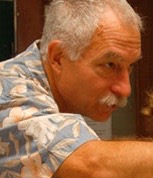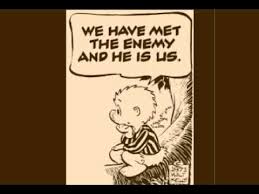

Café Conversation. A place to comment and dialogue.
Preface to the Memoir. talking about whiteness, origins of the book, keeping teaching real, race-relationship-reciprocity, use of stories, reformation of my teaching identity
Prologue. Making That Which Is Known To Others, Known To Self. my white privilege, Jo-Hari’s window, opening up the windows, Matt’s story of being discriminated against in a Southern Black restaurant, being part of the multicultural matrix that is this country, my hope these stories are useful to others. come along with me
Chapter One. Race Becomes The Window. how I’ve come at the issue of race, prior knowledge is wired into my brain, the story of Pal, Dana’s Beagle, sneaking looks at America’s dirty pictures, the television images of the fifties and sixties and their effect on me, surrounded by silence, power, privilege, and pigmentation, the power we (I) have and the need to exercise it.
Chapter Two. First Encounters Of Another Kind. Moving to white Hamilton, the Townies and the Aggies, stereotypes are real people, the summer migrant farm laborers (aka pea pickers), Samuel’s return every year, Charlie Wright the drum major, Bruce’s snapping turtle soup, my early education in privilege, in racism
Chapter Three. The Down Side of Dr. Shame my Dad’s alcoholism hurt me (us)
Chapter Four. The Up-Side of Dr. Shame my Dad’s alcoholism helped me
Chapter Five. Urban Teaching getting into college was a process of finding my way, getting out of college, rejection, the Urban Teacher Preparation Program and how I got there, falling in love with teaching, Joe Bongo and every bird, teachers who cared, my most successful unit, power-connection-identity, keys to the kingdom of learning a la Fantini and Weinstein, moving on to GLS
Chapter Six. Urban Education what living through the ’60s was like for me, it was crazy times, digging in to social change, the social activism of Father Welch and Grace Episcopal Church, Mr. Rat-bone and the police, The Montgomery March, bullet holes in Steve’s car, learning in UTPP, the evening seminar and an emotional cauldron, captured by urban ed as reaching for the democratic vision that is America
Chapter Seven. The GLS Program: My First Real Teaching Job Leaving UTPP, my first teaching job, academic instructor at GLS – last stop before reform school, classroom meetings work even with these boys, thank-you Mr. William (schools without failure) Glasser, is that a real gun, four lessons learned, Ricky and Donny and Steve and Eddy educate me, leaving GLS
Chapter Eight. My Intellectual Beginnings of Thinking About Difference: Conceptual Systems Theory. Lewin’s dictum, David Hunt and Conceptual Systems Theory, The Madison Junior High School Grouping Experiment, matched and mis-matched environments, behavior(mis) as a function of the wrong environment, using CST in my own classroom, a equitably better way to group, better for the students and better for the teacher
Chapter Nine. Roosevelt Junior High School My introduction to RJHS and the paddle, Diltz the Principal, meeting Eleanor, the emotional arc of the year, using the paddle – hitting Della, reflecting on my act of violence, the 7Js visit Common Council, Cool Jerome comes through, the non-removal of the Elms, success is a risk, getting Gloria connected, Diltz does me no favors, prisoners in our own classrooms
Chapter Ten. Connection Personified: The Other Mr. Rogers Frank Tuitt – being pedagogically transparent, Carl Rogers and Freedom to Learn, experiencing your own empiricism, testing wags the dog, Rogers meet Tuitt
Chapter Eleven. Multiage Classrooms. The Power of Mismatched Environments coming to Vermont, The Open Classroom, the central role of cognitive dissonance in learning, why mixed age groupings, Lady Plowden’s report, Ned Flanders and the analysis of verbal interaction, multiage up close, overlapping complexity, explore time under a microscope, Anne and her teaching, from the transcribed research journal expanded edition, a snapshot of activities pursued, Explore Time as engaged activity, Explore time as Gold, Multiage worked – the sadness of its loss, multiage and graded settings, multiage declines with NCLB, uninspired teaching and disaffected youth
Chapter Twelve. APEX. The American Primary Experience Program what’s an Apex, context, a few vignettes: 1-the students bring forward a proposal, 2-the apex paper airplane contest, 3-laying groundwork for a culminating experience, 4-problem-solving the human dramas of working in the schools, controlling time and space – keys to the kingdom, real teacher, real children, real situations to learn from, making placements work, personal accountability, recognition and moving on, those who helped, the eight program competencies
Chapter Thirteen. Mathematics and Gender becoming a teacher of math methods, when the concrete is abstract – manipulative mania, Jo Sanders puts it on the table – girl discrimination, ahhhhh-the enemy is me, nailing down the locus of inequitable instruction
Chapter Fourteen. Reframing The Career: Once, Twice, Three Times an Educator chairing the Department of Professional Education and Curriculum Development, framing state-wide standards for teacher education, watching cognitive revision before my very eyes, this is me as a teacher – what I know and what I do, statewide workshop giver and film maker – the VISMT experience, breaking the camel’s back- the math programs workshop at Barnes, rededication to university teaching – on my terms, my epiphany
Chapter Fifteen. Dottie’s Story. Complex Instruction CI-Social justice in action, students as colleagues, Hillary, status order in the classroom, Getting My Way, Hillary in the status order, what CI requires, the hard work of CI, Dottie’s success, the status treatments, Hillary’s academic outcomes, Hillary is better off
Chapter Sixteen. Opportunities Everywhere. learning in action, reactive learning, the City Hall Park Encounter-Welcome to Vermont, The Miranda Encounter-Being An Ally, the Groupwork Encounter-A Teaching Error, to conclude
Epilogue